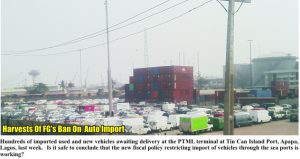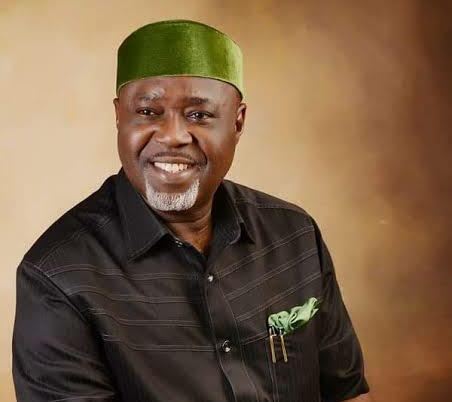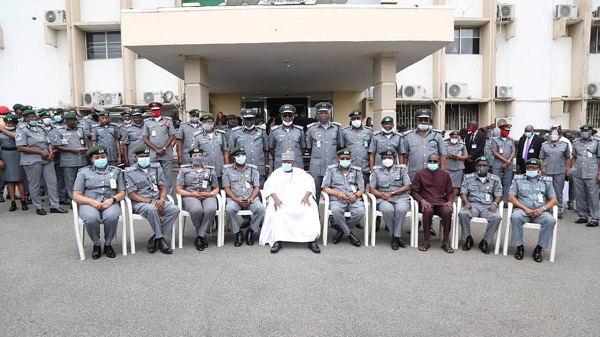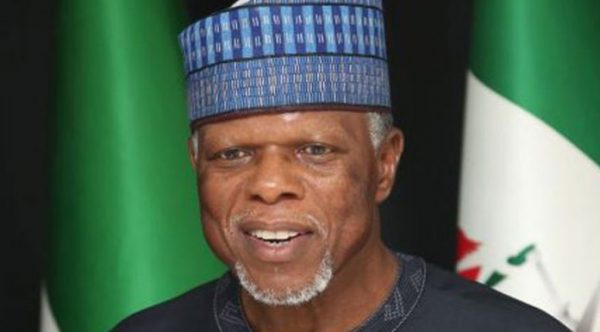Land Border Import Policy: Vehicle Traffic Returns To Lagos Ports
Barely three months after the new Federal Government fiscal policy restricting the importation of vehicles to the sea ports, the Tin Can Island Port and the Ports and Terminal Multi-Services Limited (PTML), key hubs of vehicle imports, have witnessed a significant increase in vehicular traffic as more vehicles are being imported via seaports.
Government had on December 5th last year issued a circular directing that importation of used and new vehicles be restricted to the seaports, starting from January 1st, 2017
MMS Plus investigations revealed this, as the relevant authorities have been unwilling to disclose the percentage increase witnessed since the restriction on importation of vehicles through the land borders kicked-off on January 1st. Visits to the terminals, especially PTML which used to be empty and wide enough to accommodate a competitive football match, with spectators; show return of activities.
However, cost, as a major challenge which led importers to route their vehicles through the neighbouring ports remains unaddressed, raising uncertainty on the sustainability of this new policy as the terminals may become empty again when importers realize that they cannot bear the cost and delivery time.
Speaking to our correspondent on the increased volume of vehicles at Tin Can Port, the Public Relations Officer (PRO) of Tin Can Customs Command, Mr. Uche Ejiseme said that Tin Can Customs Command was ready for more traffic as a result of the new policy.
“We are aware that the policy is bound to cause a significant increase in the volume of vehicle imports but Tin Can Customs Command has always been a vehicle port as most of the vehicles which came in via Nigerian seaports came through the Tin Can Port. We still have the equipment to handle these vehicles. Tin Can Customs Command also has the capacity, personnel and competence to manage the expected influx of vehicles through the ports.
“There has been an increase in traffic but this winter season at Europe has made it not very high because some of the areas where these vessels ought to navigate through have been blocked because of the weather. This is the impediment but I’m confident that from the month of March we would begin to record large volumes of vessels coming with vehicles and this implies that the revenue accruable for those imports would enhance our revenue base”
The management of PTML, the only terminal developed on green field basis solely for the import of vehicles in Nigeria has refused to comment on the turn of event as they said they were still watching the developments.
Nevertheless, the Command Public Relations Officer, PTML Customs Area Command, Mr. Steve Okonmah noted that the effect of the restriction would become very visible by the end of February or early in March.
“I am happy to say that the volume of vehicles coming in is improving and it is expected to increase significantly by the end of February or at most early in March” he said.
Meanwhile, auto manufacturers and assemblers in Nigeria have called on government’s intervention on patronage for locally produced vehicles.
The Chairman, Automobile and Allied Sectoral Group of the Lagos Chamber of Commerce and Industries, LCCI, Dr. Oseme Oigiagbe, noted that though low patronage was a factor adversely affecting the local auto industry, the foreign exchange crunch is also a major issue.
According to him, the low price of crude oil in the international market has affected the disposable income of many Nigerians, just as he urged government to give priority to local auto companies that have invested hugely in the assembly plant projects, in the allocation of foreign exchange.
He called on government to encourage local auto assemblers through the 2017 budget by way of ensuring that they are given priority in patronage against importers of fully built up (FBU) vehicles.
Oseme noted that the “budget as it is today does not have policy measures to discourage importation of used cars”, which is a major step towards making a success of the revised auto policy.
Tariff on imported cars, he noted, “is supposed to be a dynamic issue, relative to local production and capacity utilization of local production.”
Frontline auto industry analyst, Dr. Oscar Odiboh, also bemoaned the sorry state of the auto industry.
“I know of a company that has sacked half of its work force, some others are busy converting staff from full time employment to contract staff, even when it is against the labour law to do so. When government says companies should not down size, how do you want them to pay their staff when you don’t buy vehicles from them?” he asked.
He, however, berated the auto companies for not talking enough about the challenges facing their sector, as according to him, “many people in this government don’t know the details of this new auto policy; stakeholders need to come together, I have been advocating for an Automobile Roundtable for all industry players to come together.”
The AGM Sales & Public Relations at the defunct Volkswagen of Nigeria Limited, Ojo, Lagos, Mr. Rasheed Adegbenro, reminded government that the success of a virile automobile sector rests on economy of scale, which can only be achieved through its patronage as the highest single spender, and the general market.
Adegbenro, who until recently was the acting Director General, Manufacturers Association of Nigeria, argued: “Government as the largest single spender in the economy could use her resources to provide a minimum level of demand that would assist the automobile plants at commencement of production”.
Reacting to the situation in the auto industry, the Director of Policy and Planning, the National Automotive Design and Development Council (NADDC), Mr. Luqman Mamudu, said the body is trying to drive up the value addition in the industry, even as he disclosed that the local content in commercial vehicles is more than that of passenger vehicles.
On the plans to encourage the patronage of locally made vehicles through a vehicle finance scheme in collaboration with a South African bank and the Central Bank of Nigeria, Mamudu disclosed that NADDC is expanding the scope.
According to him, NADDC did not get the level of incentive it expected from CBN, hence, it has decided to expand the scheme by going to the capital market; a move he noted is still at its preliminary stage.
The importance of the auto industry cannot be over-emphasized, as it is a major employer of labour, significant contributor to GDP, as well as a chief facilitator of technology transfer among others.
According to the International Organization of Motor Vehicle Manufacturers (IOCA), the auto industry is the greatest engine of economic growth, just as the industry is a key sector of the economy of all major powers in the world.
This explains why countries like the USA, Japan, China and Germany, among others, cannot afford to neglect.
The establishment of Peugeot in Kaduna, Volkswagen in Lagos, Leyland in Ibadan, Mercedes-Benz in Enugu, Steyr in Bauchi, and NTM in Kano, among others, by government in the 70s, marked the formal take-off of Nigeria’s auto industry, reports Moses Akaigwe on Facebook.
However, an interplay of economic factors, including low purchasing power in the market and adverse effects of government policies such as the structural adjustment programme (SAP) of the mid 80s, forced the companies to go under except, Peugeot Automobile Nigeria (PAN), Kaduna, which managed to continue producing at about 10 percent of installed capacity.
The introduction of the National Auto Industry Development Plan (NAIDP) in 2013 encouraged some auto companies to set up new plants, with PAN reviving its Kaduna facility. Volkswagen Automobiles, Lagos; Innoson Vehicle Manufacturing Company Ltd (IVM) in Nnewi, and United Vehicle Assembly Limited (UVAL) plant built by Kia Motors, were the other prominent names that made headlines. PAN started the production of 301 and 508 – sedan and luxury sedan, respectively; while Innoson launched into the market a line-up of passenger cars, SUVs and sundry bus models. ANAMMCO, Enugu also bounced back when Transit Support Services (TSS) Ltd partnered with a leading Chinese auto maker to assemble Shacman heavy duty trucks and tractor heads.
However, recent happenings have raised fears that the industry may be heading back to its former moribund state if government does not immediately muster the political will to prevent this from happening. Already, companies that invested heavily in setting up auto plants are complaining of low patronage which has forced some of them to either down-size or operate skeletally, leading to loss of jobs.
However, Federal Government may have decided to reserve its policy on the importation of vehicles through land borders across the country as stakeholders protest on the issue may be receiving attention.
In response to a petition written by the National Council of Managing Director of Licensed Customs Agents, (NCMDLCA) asking the government to extend the period before implementing the policy, Mr. Ibrahim Abdul, an Assistant Director in the office of the Secretary to the Government of the Federation said that the authority was considering the extension.
The letter with reference number ECD/P/251/T/111/232 and dated 25th January, 2017, Abdul said the issue of extension has been forwarded to both the Federal Ministry of Finance and the Nigeria Customs Service.
Part of the letter reads “I am directed to acknowledge the receipt of your letter dated 12th of January, 2017 in respect of the above subject and inform you that the issues raised therein have been forwarded to the Federal Ministry of Finance and the Nigeria Customs Service for consideration and necessary action”.
It will recalled that the National Council of Managing Director of Licensed Customs Agents, had written to the Presidency saying that the ban of vehicles through land borders was against international trade laws.
In a petition, the council said that the laws of the World Trade Organization, WTO, stipulates that trade regulations and amendments with regards to restriction and reversal of Fiscal Policy on Trade, must be subject to process of consultation by trading public and transparency in the timing, so as to accommodate the challenges that maybe associated with the directive/regulation.
The convention according to the Council also stipulates that each contracting party shall provide opportunities and an appropriate time period to traders and other interested parties to comment on the proposed introduction or amendment of laws and regulations of general application related to the movement, release, and restriction of transit goods.
He also said that the restriction of vehicles through the land borders came at a very short notice, which contravenes the convention and global best practice on reasonable information across the international community, carrier, and shippers, traders etc., that are directly affected by the decision.
He explained that vehicles held up at the borders are mostly legitimate goods that are legally process from the land borders as authorized by the Federal Government under the Federal Government import regime, which import duty is assessed and paid into Federal Government account legally. He said that grace period is given to importers and exporters due to challenges associated with the restrictions and structural changes that affect trade.








